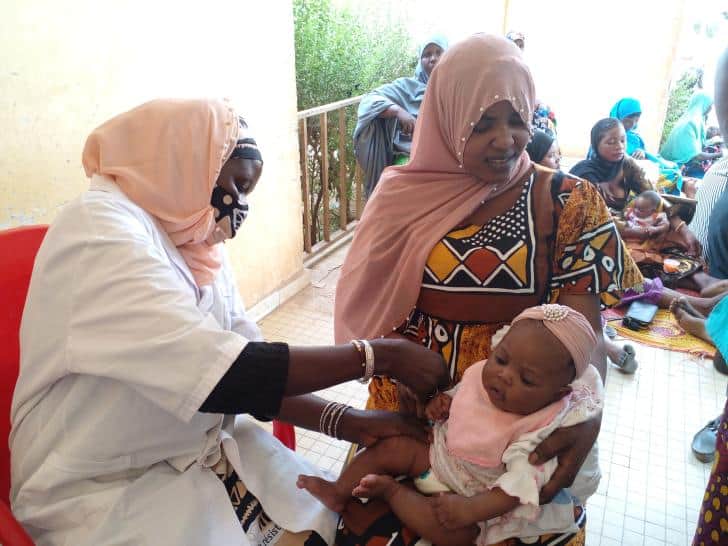JSI’s first activity in Mali was the ENTERPRISE Project, implemented there in the late 1980s to establish and improve family planning services through private-sector health systems. JSI has continued to support improvements in family planning, and maternal, child, reproductive, and environmental health in Mali, employing expertise in wide range of technical areas, including immunization, health logistics, and information technology.
Currently, JSI leads the implementation of MOMENTUM Integrated Health Resilience (MIHR) in Mali. MIHR works to improve the availability, quality, and utilization of an essential package of MNCH/FP/RH services; improve the governance and accountability of health systems; and increase the adoption of healthy behaviors and demand for health services, with the goal of a more resilient health system that supports improved health outcomes in Northern Mali. MIHR works across all relevant sectors and ensures that its efforts reflect Government of Mali and USAID priorities.The geographic focus of the project is the northern regions of Gao and Timbuktu.
JSI has also worked to improve health outcomes for high-burden and vulnerable populations through the Mother and Child Health Integrated Program (MCHIP) and the Maternal and Child Survival Project (MCSP). We fostered effective policy, program learning, and accountability for improved outcomes across the continuum of care.
Through MEASURE Evaluation, JSI’s activities have focused on strengthening the health management information system (HMIS) a critical sub-system of the routine health information system (RHIS) and addressing other M&E needs per the request of the USAID Mission. in 2015, MEASURE Evaluation was asked to support the Mali Ministry of Health (MoH) to strengthen disease surveillance systems to better respond to Ebola Virus Disease and other infectious diseases.
In the early 2000’s, JSI collaborated with its affiliate, World Education, and USAID to implement the Programme Denmiseniya Yiriwali, an initiative that addressed Mali’s rapid population growth and high maternal mortality rates through social marketing of contraceptive commodities, peer education on reproductive health and basic nutrition, and counseling for youth.





